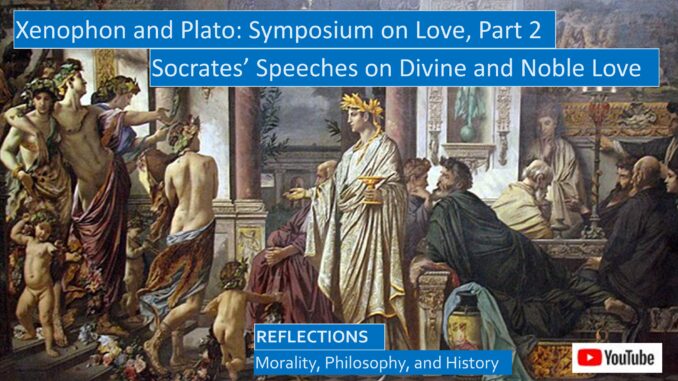
We will reflect on the Socratic dialogues by Xenophon and Plato, the Symposium, where the dinner guests offer speeches, many of them on love. In this video we will reflect on the final speech delivered by Socrates.
Our first video reflects on the speeches by the guests on romantic and carnal love, the love for our friends and lovers, the love which we all seek. If our love for our lover or friend is a genuine and true love, then it reflects the divine and noble love so richly painted by Socrates.
First Blog and video on Symposium and Romantic Love:
https://seekingvirtueandwisdom.com/xenophon-and-plato-socratic-dialogue-symposium-romantic-and-carnal-love-part-1/
https://youtu.be/OIe5pn2S1Ls
YouTube video for this blog on Symposium and Divine Love:
https://youtu.be/z6X3pwVTdrc
YouTube script with book links: https://www.slideshare.net/BruceStrom1/xenophon-and-plato-socratic-dialogue-symposium-divine-and-noble-love-part-2
Just as Socrates finishes his speech on divine and noble, our drunken and rowdy friend Alcibiades crashes his party and is invited to give his own speech on Love, which is really a speech comparing his carnal love for Socrates, to Socrates’ divine love for Alcibiades, and all his students, and indeed for all of Athens.
DIOTIMA TEACHES SOCRATES ABOUT LOVE, USING THE SOCRATIC METHOD
In his concluding speech, Socrates tells us of the lessons on love that were taught to him by “Diotima of Mantineia, a woman wise in this and many other kinds of knowledge, who in the days of old,” who magically delayed the plague from striking Athens for ten years. Dr Wikipedia informs us that Diotima means someone who honors and is honored by Zeus, and that Mantineia suggests she is a prophet. She is likely a literary device; scholars credit this speech as the inspiration for platonic love.[1] This speech is a dialogue within the dialogue, as Socrates asks Diotima about the secrets of love, for Diotima “was his instructress in the art of love.”
Socrates proclaimed that “Love was a mighty god, and likewise fair;” but Diotima proved that “Love was neither fair nor good.” “Do not infer that because Love is not fair and good, he is therefore foul and evil; for Love is in a mean between them.” Furthermore, “Love is a great spirit, and like all spirits, he is intermediate between the divine and the mortal.” “Love mediates between gods and men, conveying to the gods the prayers and sacrifices of men, and to men the commands and replies of the gods.” “God mingles not with man; but through Love all intercourse and conversing with god, whether awake or asleep, is carried on. The knowledge which understands this is spiritual; all other knowledge, such as arts and handicraft, is mean and vulgar.”
Diotima than tells this tale of the birthing of Love: “On the birthday of Aphrodite,” goddess of desire, “there was a feast of the gods, at which Poros or Plenty, who is the son of Metis or Discretion, was one of the guests. When the feast was over, Penia or Poverty,” “came to the doors to beg. Now Plenty, who was drunk with nectar,” food of the gods, “went into the garden of Zeus and fell into a heavy sleep; and Poverty” “plotted to have a child by him, and accordingly she lay down at his side and conceived Love. Love, partly because he is naturally a lover of the beautiful, because Aphrodite is herself beautiful, and because he was born on her birthday, is her follower and attendant.”
“As is his parentage, so also are Love’s fortunes. In the first place, Love is always poor, and anything but tender and fair, as many imagine him; he is rough and squalid, and has no shoes, nor a house to dwell in,” “like his mother he is always in distress. But like his father,” “Love is always plotting against the fair and the good; he is bold, enterprising, a mighty hunter, always weaving some intrigue or other, keen in the pursuit of wisdom.” “Love is a philosopher or lover of wisdom.”
Not all which men call love is truly love. Diotima reasons that when “people say that lovers seek for their other half,” this search is not genuine, “unless the half or the whole be also a good.” “Men can only truly love the good.” “Love may be described as the love of the everlasting possession of the good.”[2]
The best example of how you may think you love someone, but this is not truly love, unless your love is genuine, is the advice St John of the Cross gives us in selecting our close friends, and who should be a closer friend than your spouse?
We need to choose our close friends with care, lest they be a spiritual luxury that clouds our soul and hinders our spiritual life. “When our friendship is purely spiritual, the Love of God grows with it; and the more the soul remembers it, the more it remembers the Love of God, and the greater the desire it has for God.” But a sensual friendship decreases in us our Love of God and obstructs our spiritual progress. “If that sensual love grows, the soul’s love of God will grow colder, and will forget God as it remembers the sensual love.”
By analogy, when we fall in love, when we seek to marry, do we seek someone who will make us happy? But if our marriage is both happy and successful, each spouse must first seek to be kind to the other, each putting the other’s needs first, each seeing the marriage as a monastic calling.[3]
When we draw an analogy from the writings of St John of the Cross to our lives as laymen, we should ask this question about our friendships: Do we bring out the best in each other? Or do we bring out the worst in each other? The prospective bride should ask herself the key question, Will he be a good father? Will he be good with our children?
My comments here are colored by the advice offered in the divorce group support DVD’s in the non-denominational DivorceCare program, which has both Protestant churches and Catholic parishes hosting these support groups,
And I would also like to mention there is a Catholic specific program, which is beneficial since it covers the Catholic Church’s teachings on annulments.
https://www.divorcecare.org/ and https://www.catholicsdivorce.com/
In our video on St John of the Cross, we also discuss at length one of my favorite Bible stories, Jezebel and Ahab. Theirs is one of the few happy marriages of the Old Testament, Jezebel wants her darling husband happy, and when she discovers he is sulking because Naboth won’t sell him his vineyard, what does she do? She frames Naboth for blasphemy, so his executed, and then gives the vineyard to Ahab. The story has the wild dogs devouring her body in the streets, likely while she is still alive, so we know that Jezebel did not meet a very pleasant end.
Diotima does acknowledge that common love does have its divine aspects, especially how men and beasts both seek partners and protect their young: “Do you not see how all animals” “are in agony when they are infected by love,” how eager they are to mate, and how often they are “tormented with hunger or suffer anything to maintain their young?” This is also true for men, “Marvel not then at the love which all men have of their offspring; for that universal love and interest is for the sake of immortality.”
The ancient Greeks lived in a warrior culture, Diotima also marvels at how warriors “are stirred by the love of immortality of fame, ready to run all risks far greater than they would run for their children, and to spend money and endure toil, and even die, for the sake of leaving behind them a name which should be eternal.” She gives us the example of how Achilles revenged the death of his friend Patroclus in the Iliad.[4]
Diotima observes there are more noble souls who seek a more lasting legacy, which may or may not lead to fame, those who seek to improve the world through “wisdom and virtue,” some through art and poetry, and some who possess the “greatest and fairest sort of wisdom” who seek a better “ordering of states and families through temperance and justice,” noble souls who seek out other souls who can become noble through moral education on philosophy, who educate their children on the noble lessons of Homer, the poets, Solon, and the philosophers.
This philosophic wisdom is what is most beautiful, “the beauty of the mind is more honorable than the beauty of the outward form.” When Plato talks about forms, he reveals there is an ideal form that is the perfect form, what later Christian Neo-Platonists say resides in the mind of God. “The virtuous soul contemplates the beauty of laws and institutions” created in the “boundless love of wisdom.” Plato explores the founding of a utopian government, and his work on the Laws was his final dialogue.[5]
In her conclusion, Diotima declares to Socrates how the true Love of wisdom soars to the heights of heaven, heights to which the later Neo-Platonists will ascend, where language and perception can no longer describe or perceive. We reflected on the commentary on the Beatitudes by St Gregory of Nyssa, whose works were an inspiration for Dionysius the Areopagite, where pilgrims first climb out of Plato’s cave of ignorance into the light, then climb the mountain of heaven, which CS Lewis’ characters also climb in his work on the Great Divorce.
Diotima declares that those who seek Love and seek to love beauty will “perceive a nature of wondrous beauty which is everlasting, not growing or decaying, or waxing or waning. This nature is neither fair nor foul,” outside of “speech and knowledge,” outside of existence, “but is beauty absolute, separate, simple, and everlasting,” neither diminishing nor increasing, and is unchanging, neither growing nor perishing, “ascending under the influence of true Love.”
Diotima’s soaring description of Love, and similar writings by Plato, further inspire the Neoplatonists such as Plotinus and Proclus, who inspired Christian Neoplatonists such as Dionysius the Areopagite. Let us compare this poetry of thought by Diotima on Divine Love to the opening stanzas of Dionysius’ key work on Mystical Theology:
“Trinity! Higher than any being, any divinity, any goodness!
Guide of Christians in the wisdom of heaven!
Lead us up beyond unknowing and light,
up to the farthest, highest peak of mystic Scripture,
where the mysteries of God’s Word
lie simple, absolute and unchangeable
in the brilliant darkness of a hidden silence.
Amid the deepest shadow
they pour overwhelming light
on what is most manifest.
Amid the wholly unsensed and unseen
they completely fill our sightless minds
with treasures beyond all beauty.”[6]
Diotima asks the question that all true philosophers ask, the question that can never be answered, for the answer can only be eternally sought after, “What if man had eyes to see the true beauty, the divine beauty, pure and clear and unalloyed, not clogged with the pollutions of mortality and all the colors and vanities of human life, conversing with true beauty, simple and divine?”[7]
ALCIBIADES CRASHES THE PARTY AS HE DID TO ATHENS IN THE WAR
Socrates finishes his recollections of what Diotima taught him about love, and then, immediately we hear a “great knocking at the door, and the sound of a flute-girl and many revelers,” and everyone wonders, who are these intruders? Why, it is Alcibiades, he boisterously proclaims, “‘Hail, Friends!’ He is crowned with a massive garland of ivy and violets, his head flowing with ribands. ‘Will you have a very drunken man as a companion to your revels? Or shall I crown Agathon, which was my intention in coming, and go away?’”[8]
This dialogue was set in a time when both Socrates and Alcibiades were younger, before Alcibiades talked the Athenian Assembly into breaking the Peace of Nicias and sending a massive expedition to Sicily, before he was unjustly prosecuted for impiety while he was on campaign. That Sicilian fleet was destroyed, and not wanting to face trumped up charges and a certain conviction, Alcibiades turned traitor and advised the Spartans on how to win the war. Then he sleeps with the Queen of Sparta, he leaves under a death sentence, then advises the Persians on how to succeed in prosecuting the war. Then he bursts onto the scene with the Athenian fleet based on Samos, manages to be appointed general, and once again provides excellent leadership, with a five-year long string of victories, until he is voted out of office and leaves Athens again for exile, and Athens loses the war against Sparta and her allies.
So, Alcibiades bursts into the dinner party just as boisterously as he bursts onto the scene of the Athenian fleet in Samos, demonstrating what Aristophanes said about him in one of his plays, The Athenians love him, they hate him, they can’t do without him.
Plutarch tells us the essence of his character: “As for Alcibiades’ good looks,” “they bloomed in his childhood, in his youth, and when he had grown up too; however old he was,” “his attractiveness, charm, and good looks never left him.” “He was highly passionate, and his most powerful motivation was the desire to compete, and to come first.”
Plutarch reveals the vices of Alcibiades, “But along with his statesmanship, eloquence, pride, and ingenuity went, by contrast, a luxurious lifestyle of overindulgence in drink and sex, effeminacy of dress,” “and incredible extravagance.” Many “notable men of Athens combined feelings of abhorrence and disgust with the fear of his haughty and lawless attitude, which could be tyrannical in its excessiveness.
In the Symposium, the guests eagerly invite Alcibiades to join him, because he is always one to liven up the party, then they ask Alcibiades to give the last speech on Love, and he agrees, but he instead speaks of the divine Love Socrates has for his soul, versus his base physical desires and carnal love, never consummated, for Socrates, despite many temptations and many wooings, and how the Love of Socrates is the superior love.
Alcibiades confesses that “Socrates would transfix me, so I would seek to grow old sitting at his feet. For he makes me confess that I ought not to live as I do, neglecting the wants of my own soul, and busying myself with the concerns of the Athenians.” “Socrates is the only person who ever made me ashamed,” I know I should do as he suggests, “but when I leave his presence the love of popularity gets the better of me. Therefore, I run away and fly from him, and when I see him, I am ashamed of what I have confessed to him. Many times I wished that he were dead, and yet I know that I should be much more sorry than glad, if he were to die: so that I am at wit’s end.” Is Alcibiades unwittingly admitting his arrogance makes true empathy for another person impossible?
Alcibiades truly commends Socrates, “Know that beauty and wealth and honor” “are of no account to Socrates and are utterly despised by him: he is not impressed by” those who are handsome, wealthy, or popular; “all his life is spent in mocking them, flouting their superiority.” But Alcibiades saw in Socrates “divine and golden images of fascinating beauty that I was ready to do in a moment whatever Socrates commanded.”
Alcibiades and Socrates were close friends, they both fought as hoplites in the Battle of Potidaea, when Socrates saved Alcibiades. Alcibiades describes how he tried numerous times to seduce Socrates; but was repeatedly rebuffed; he even invited Socrates to supper one night, drinking wine, though Socrates, no matter how much he drinks, never gets drunk, and Socrates never relaxes his self-control and self-discipline. One such night after much wine was drunk, they discussed moral philosophy, and since it was late Socrates fell asleep on the couch. Since he had enormous respect for his teacher, Alcibiades merely covered him and let him sleep.
All his life, Alcibiades was looking for city-states and lovers to conquer, but he met in Socrates someone he could never conquer, who was above conquering. Alcibiades rhetorically asked the other guests, “What do you suppose must have been my feelings, after this rejection, at the thought of my own dishonor?” Which is an odd question, Alcibiades never considered whether anyone else had feelings. Alcibiades continues, “Yet I could not help wondering at his natural temperance and self-restraint and manliness. I never imagined that I could have met with a man such as he is in wisdom and endurance. Therefore, I could not be angry with him or renounce his company, any more than I could hope to win him.”[9]
Plutarch comments, “the fact that Socrates was in love with Alcibiades strongly suggests that the boy was endowed with a natural aptitude for virtue. Socrates saw Alcibiades’ good looks as the brilliant external manifestation of this excellence.” [10]
Plutarch states that Socrates pursued Alcibiades more as an irate schoolmaster than as a lover. “Socrates with his love did tend to subdue Alcibiades, who had sufficient innate excellence for Socrates’ arguments to get through to him, wrench his heart, and start the tears flowing. But he also sometimes surrendered to his flatterers and all the delights they held out, and then he would give Socrates the slip and be hunted down, for all the world like a runaway slave, because Socrates was the only one of his lovers he respected and feared, while he had nothing but contempt for the rest.” [11]
Although Plato, in passages we did not quote, does approve of homosexual relationships when they are respectful towards the younger party, where the older man seeks to be his mentor and moral example, his description of the relationship between Socrates and Alcibiades clearly dials back the sensual side of close male friendships.
Now that we have reflected on the final speech in Plato’s Symposium, we will examine Socrates’ final speech on love in the other Symposium described by Xenophon. No doubt Xenophon read Plato’s classic Symposium, and he likely was seeking to neither better nor refute Plato’s account, but rather Xenophon reinforces the Platonic Socratic notion of love, perhaps seeking to restate it in simpler terms.
SPEECH ON LOVE BY XENOPHON’S SOCRATES
In Xenophon’s Symposium, Socrates states, “Gentlemen, we are in the presence of a great deity, as old in time as the eternal gods, and yet most youthful in appearance, who pervades all things in his greatness and is enshrined in the heart of man: I mean Love.” Most of us have been touched by love, Socrates states, “I can’t name a time when I haven’t been continuously in love with someone.”
Reflecting on the speech on love by Pausanius, Xenophon’s Socrates reasons, “Whether there is one Aphrodite or two, Celestial or Common, I don’t know: Zeus has many titles, although he is regarded as the same deity.”
Socrates continues, “But I do know there are altars and shrines for both, with casual rites for the Common Aphrodite, and more devout rites for the Celestial Aphrodite. The Common Aphrodite inspires physical love, and the Celestial Aphrodite inspires love of the mind, friendship, and noble deeds.”
Socrates urges, “Love for the mind is much better than physical love.” Those who have a celestial love for the character of their beloved have a pleasant love, but “many with sensual desires criticize and dislike the characters of those whom they love.” For those with a sensual love, “the bloom of youth quickly fades,” as does affection; “but when a mind is progressing to greater wisdom, the more lovable it becomes.”[12]
CHRISTIAN DEFINITION OF LOVE
One reason why Christian scribes were so careful to preserve nearly all of the works of Plato and Xenophon is that their philosophy was both compatible with Christianity, and also influences and enriches Christian theology. So the core teaching of both the Jewish and Christian traditions enriches what we learn about Love in the Symposium.
What is this core teaching? Jesus exhorts us, “You shall love the Lord your God with all your heart, and with all your soul, and with all your mind.’ This is the greatest and first commandment. And a second is like it: You shall love your neighbor as yourself.”[13] Plus, the St Maximus Corollary: Be eager to forgive your neighbor.
Both of these commandments are the Divine Love that Plato describes in the Symposium. Like the country song suggests, If you don’t love your neighbor, you don’t Love God. As we learned from St John of the Cross, if our love for our neighbor or our love for our spouse does not increase in us our Love of God, then it is not love at all. Which means that you cannot talk about two types of love, one mortal, one divine, as do the speakers like Agathon in the Symposium, though you could talk about love and lust, love being unselfish, and lust being selfish. When you lust, you only care about yourself, you do not care about the well-being of your partner or friend.
St Augustine, in his core work, On Christian Teaching, answers the question: How Should We Read Scripture? St Augustine teaches, “Whoever thinks he understands the Holy Scriptures, or any part of them, but interprets them in a way that does not build up this two-fold Love of God and love of neighbor, does not truly understand the Scriptures. If, on the other hand, a man draws a meaning from Scriptures that builds up the two-fold Love of God and love of his neighbor, although he does not precisely understand the exact meaning of the author, his error is not pernicious, and he is wholly clear from the charge of deception.” [14]
[1] https://en.wikipedia.org/wiki/Diotima_of_Mantinea
[2] Plato, Essential Dialogues of Plato, , translator Benjamin Jowett and Pedro De Blas (New York: Barnes and Noble Classics, 2005, 1871, originally 400+ BC), Symposium 201d-206a, pp. 94-98.
[3] St John of the Cross, Dark Night of the Soul (New York: Doubleday, 1990, 1959, originally 1579, translator, E Allison Peers), Book 1, Chapter 4, pp.47-52.
[4] Plato, Essential Dialogues of Plato, Symposium 207a-208b, pp. 98-100.
[5] Plato, Essential Dialogues of Plato, Symposium 209a-210c, pp. 100-101.
[6] Dionysius, the Complete Works, The Mystical Theology, translator, Colm Luibheid, Introductions (New York: Paulist Press, 1987, originally around 500), Chapter 1.1-2, pp. 135-136.
[7] Plato, Essential Dialogues of Plato, Symposium 210a-212a, pp. 101-102.
[8] Plato, Essential Dialogues of Plato, Symposium 212c-212e, p. 103.
[9] Plato, Essential Dialogues of Plato, Symposium 213a-219d, pp. 103-109.
[10] Plutarch, Greek Lives, Alcibiades, Chapter 4-6, pp. 224-226.
[11] Plutarch, Greek Lives, Alcibiades, Chapter 6, p. 226.
[12] Xenophon, Conversations of Socrates, The Dinner Party, translators Hugh Tredennick and Robin Waterfield (New York: Penguin Classics, 1990, 1970, originally 400’s BC), Book 8, pp. 257-258.
[13] https://www.biblegateway.com/passage/?search=Matthew+22%3A37-39&version=NRSVCE
[14] St Augustine, On Christian Doctrine, In the Nicene and Post-Nicene Fathers, First Series, Volume 2, translated by Rev JF Shaw (Boston: Hendrickson Publishers, 1994, 1887, originally 426 AD), Book 1, Chapter 36, p. 533.

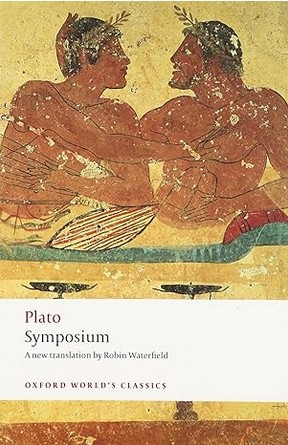
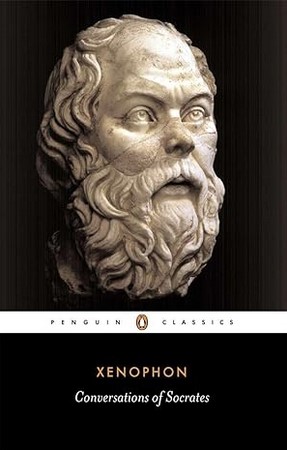
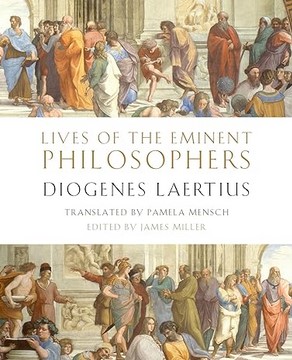



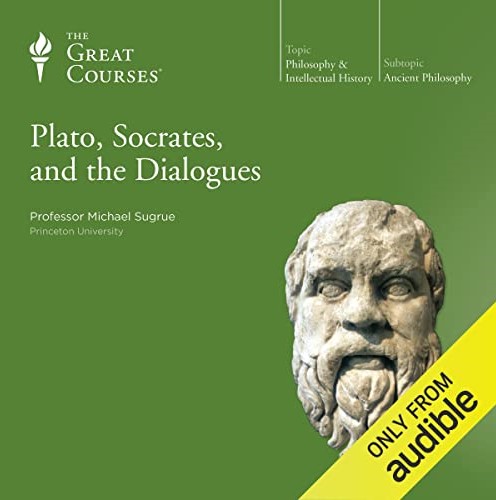
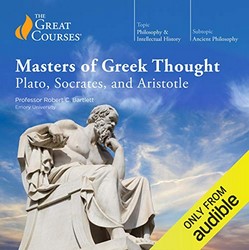
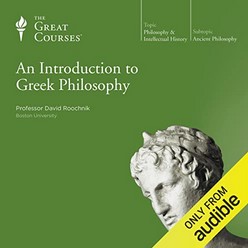
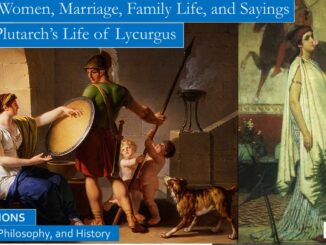

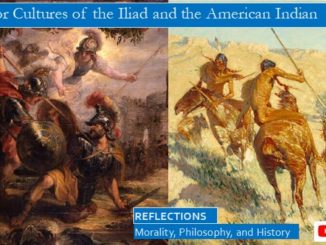
Be the first to comment